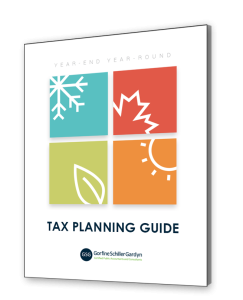
Tax planning is not usually included in a summertime agenda, but now is the time to get a head start. Waiting until the end of the year reduces the time for your planning strategies to take effect. Take time now to schedule a midyear tax planning review, and you’ll still have eight months for your actions to make a difference on your 2017 tax return. In addition, proposed tax reform could be cause for further changes to your tax plan. Planning now for 2017 taxes not only helps reduce your tax burden, but it can help you gain control of your future finances.
IRS Now Using Collection Agencies
The IRS is now using outside collection agencies to collect unpaid tax obligations. This new program will take a slow start with only a few hundred taxpayers receiving mailings, and the number will gradually increase to the thousands later this spring and into summer. Taxpayers who are contacted will first receive several collection notices from the IRS before their accounts are turned over to the private collection agencies. From there, the agency will send its own letter to the taxpayer informing them the IRS has transferred the account. Agencies are required to identify themselves as working with the IRS in all communications.
Unfortunately, a change like this leads to confusion among taxpayers, which gives scammers a new opportunity to strike. The IRS reminds taxpayers that private collection companies will never approach taxpayers in a threatening way. Fraudulent behavior includes pressuring taxpayers for immediate payment, requesting credit card information, requesting payments in gift cards, prepaid debit cards, or requesting a wire transfer. A collection agency will use a letter associated with the IRS instructing taxpayers to write a check directly to the IRS.
What to Do if Selected for a Correspondence Audit
Routine audit reviews are now being handled by the IRS through form letters, or correspondence audits. These letters come from the IRS, asking for clarification and justification of specific deductions on your tax return. Correspondence audits are commonly triggered by large charitable deductions, withdrawals from retirement accounts and education savings plans, excess miscellaneous deductions, and small business expenses.
Don’t panic if you get one of these audit form letters. The IRS often uses computer programs to compare individual return deductions with the averages for a person’s income level or profession. If you’ve received a letter, you may have simply fallen outside the averages. As long as you respond promptly, thoroughly, and with good documentation, it won’t necessarily become a contentious issue. The key is to keep proper, well-organized documentation under the assumption you may need it to support your deductions. If you do this right, the correspondence audit will end with a “no change” letter from the IRS, acknowledging you’ve addressed their concerns.
Everyone Knows Someone Who Missed the Boat
This year’s April 18 tax deadline has come and gone, but not everyone has filed a 2016 tax return. While many have filed an extension and intend on getting their return in order, too many taxpayers who should file, simply do not. Common culprits are retired individuals and young adults who are new to tax filing requirements. Here are some of the reasons why it will help them to file a tax return:
- Withholdings – People who work but earn less than the required filing threshold should file a tax return so they can get back any withholdings their employer may have taken out of their paycheck. This happens because many taxpayers focus on the income threshold required to file a tax return and forget to look at their W-2 to see if money was taken out of their paycheck. The single individual filing threshold for 2016 is $10,350 and the married filing jointly threshold is $20,700.
- Refundable Credits – There are a number of refundable or partially refundable tax credits, such as the earned income tax credit and the additional child tax credit, that are only available if you file a tax return. Refundable credits are special because they come off the top of your tax bill and can even reduce it below zero. In that case you’d get the amount of the credit back in a refund check from the IRS.
- Help Apply for Loans or Financial Aid – Many banks or colleges will ask to see your tax return information to help you qualify for loans or financial aid. Filing a tax return, even if you’re not required to, helps support your application.
- Protect Yourself – There’s a disturbing trend of identity thieves filing false returns to try to collect illicit refunds from the IRS. They often target people who may not usually file a return. By filing even a simple return, you can shut down this attempt at fraud by identity thieves.
If you have any questions or would like to learn more about post-tax season planning, contact GSG’s Tax Team here.
Categories: Tax, Tax Planning





